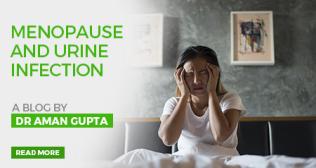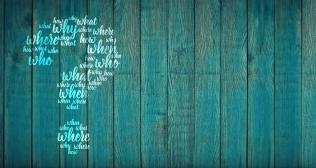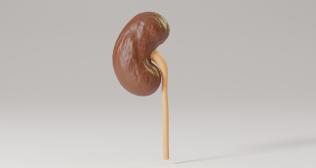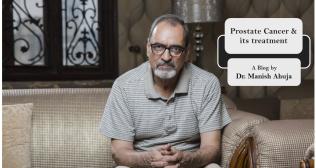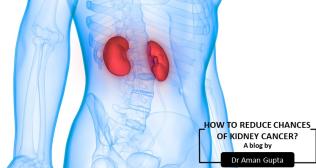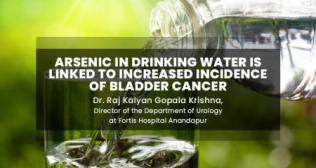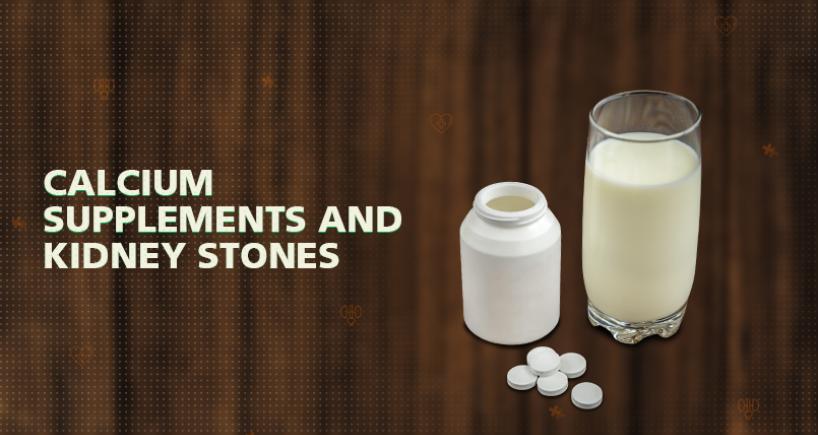
Calcium Supplements And Kidney Stones
I often come across patients with history of kidney stones and taking calcium supplements.
They question if they should continue taking them or not!
Let me explain.
Daily requirement of calcium is 1000mg /day in females less than 50 years and men less than 70 years. In females more than 50 years and men more than 70years the requirement is 1200 mg/day. Calcium is an essential mineral for bone health and inadequate intake leads to poor bone health and increased risk of bone thinning (osteoporosis) fractures.
Calcium oxalate stones are the commonest type of stones in Indian population. So does an intake of calcium supplements increase one chances of forming calcium stones?
Let me explain.
Calcium oxalate stones form when urine becomes highly concentrated and the calcium oxalate it contains forms crystals and stones. This may result from inadequate water intake or taking foods rich in oxalate like spinach, rhubarb, French fries, chocolates, beet and nuts.
Calcium by itself is not the culprit for stone formation. If one consumes inadequate amounts of calcium then body starts dissolving bones to release calcium and maintain adequate amounts in blood. This leads to excess excretion in urine and crystallization to form stones.
Studies show that higher the amount of DIETERY CALCIUM, lesser the chances of calcium stones. However, if along with dietary intake of calcium, calcium supplements are taken, it increases the chances of kidney stones. Why this difference?
The answer is that, the calcium in food binds with dietary oxalate and is excreted in the feces without being absorbed and passing as crystals in the urine. If calcium supplements are taken alone without food, then it cannot bind with oxalate in the intestines and then both are available to be passed in urine and form crystals and stones.
So, what to do?
– Do not reduce dietary calcium (found in dairy products). You need to eat enough calcium so that it binds to oxalates in the intestine and oxalates leave the body through the feces instead of forming crystals and stones in urine.
– Do not cut down on calcium supplements if prescribed by your doctor for bone health, especially in menopausal women.
– Take the supplements along with food.
– Drink sufficient amounts of water 6-8 glasses/day (unless water intake is restricted by your doctor for medical reasons!)
– Reduce intake of salt in diet as it increases calcium excretion in urine
– Reduce intake of caffeine as it increases calcium excretion in urine
– Reduce intake of animal proteins
– Do not cut down on all oxalate containing foods as it is not good from overall health prospective. Instead, take oxalate and calcium containing foods together in the diet.
– Take lemon with water (don’t add salt and sugar!). Citrate in lemon helps in reducing stone formation.
– If taking calcium supplements, if you have history of kidney stones, then calcium citrate salt may be preferred over calcium carbonate salt as citrate is a natural inhibitor of stones.
Understanding the intricate relationship between calcium supplements and kidney stones is crucial for informed health decisions. Fortis Hospitals provides expert insights on questions like "Does calcium cause kidney stones?" and explores related topics such as "Can Tums cause kidney stones?" Our experts also delve into the role of calcium citrate and supplements that may help dissolve kidney stones, offering valuable guidance on managing kidney stone risks while optimizing calcium intake.
Popular Searches :
Hospitals: Cancer Hospital in Delhi | Best Heart Hospital in Delhi | Hospital in Amritsar | Hospital in Ludhiana | Hospitals in Mohali | Hospital in Faridabad | Hospitals in Gurgaon | Best Hospital in Jaipur | Hospitals in Greater Noida | Hospitals in Noida | Best Kidney Hospital in Kolkata | Best Hospital in Kolkata | Hospitals in Rajajinagar Bangalore | Hospitals in Richmond Road Bangalore | Hospitals in Nagarbhavi Bangalore | Hospital in Kalyan West | Hospitals in Mulund | Best Hospital in India | Gastroenterologist in Jaipur | Cardiology Hospital in India
Doctors: Dr. Rana Patir | Dr. Rajesh Benny | Dr. Rahul Bhargava | Dr. Jayant Arora | Dr. Anoop Misra | Dr. Manu Tiwari | Dr. Praveer Agarwal | Dr. Arup Ratan Dutta | Dr. Meenakshi Ahuja | Dr. Anoop Jhurani | Dr. Shivaji Basu | Dr. Subhash Jangid | Dr. Atul Mathur | Dr. Gurinder Bedi | Dr. Monika Wadhawan | Dr. Debasis Datta | Dr. Shrinivas Narayan | Dr. Praveen Gupta | Dr. Nitin Jha | Dr. Raghu Nagaraj | Dr. Ashok Seth | Dr. Sandeep Vaishya | Dr. Atul Mishra | Dr. Z S Meharwal | Dr. Ajay Bhalla | Dr. Atul Kumar Mittal | Dr. Arvind Kumar Khurana | Dr. Narayan Hulse | Dr. Samir Parikh | Dr. Amit Javed | Dr. Narayan Banerjee | Dr. Bimlesh Dhar Pandey | Dr. Arghya Chattopadhyay | Dr. G.R. Vijay Kumar | Dr Ashok Gupta | Dr. Gourdas Choudhuri | Dr. Sushrut Singh | Dr. N.C. Krishnamani | Dr. Atampreet Singh | Dr. Vivek Jawali | Dr. Sanjeev Gulati | Dr. Amite Pankaj Aggarwal | Dr. Ajay Kaul | Dr. Sunita Varma | Dr. Manoj Kumar Goel | Dr. R Muralidharan | Dr. Sushmita Roychowdhury | Dr. T.S. MAHANT | Dr. UDIPTA RAY | Dr. Aparna Jaswal | Dr. Ravul Jindal | Dr. Savyasachi Saxena | Dr. Ajay Kumar Kriplani | Dr. Nitesh Rohatgi | Dr. Anupam Jindal |
Specialties: Heart Lung Transplant | Orthopedic | Cardiology Interventional | Obstetrics & Gynaecology | Onco Radiation | Neurosurgery |









